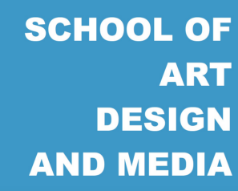Program Overview
The Master’s Program in Engineering of Industrial at East China University of Science and Technology is affiliated with the School of Art, Design and Media. With over thirty years of experience in the fields of industrial design and product design, the program aims to cultivate high-quality professionals who can meet the needs of national economic and social development. It also emphasizes patriotism, compliance with laws and regulations, professional ethics, and social responsibility. The teaching approach centers on design theory and is driven by innovation.Students are expected to be familiar with industry standards, capable of independently handling technical tasks in specific areas, and maintain both physical and mental well-being as well as foreign language proficiency. The teaching approach centers on design theory and is driven by innovation. The school is well-equipped with various laboratories, research centers, and resource rooms, and has produced a large number of design professionals for society. To enhance the quality of engineering education, the university provides a strong faculty team, promotes industry-academia integration, and aligns curriculum design with market demands. Research directions include industrial product design, environmental art design, visual communication design, communication design, landscape and urban image design, and social innovation design (in collaboration with other schools). The program duration is three years, with a training period of 3–5 years, The program duration is three years, with a training period of 3–5 years, and the validity period for courses is five years from the date of enrollment.
Faculty Strength
The faculty team of this master’s program is highly experienced, with strong performance in cultivating engineering-oriented graduate students. The school integrates top academic advisors from within the university and seasoned industry experts to form a complementary team. A dual-advisor system is implemented, with academic mentors and industry practitioners jointly guiding students throughout the entire training process, emphasizing professional skill development. This model strengthens the integration of industry and education, ensures alignment between teaching and real-world practice, and provides comprehensive support and high-quality conditions to enhance the overall effectiveness of talent cultivation.
Teaching Philosophy
This master’s program adopts an integrated model combining coursework, professional practice, and thesis research, with a focus on enhancing professional competence, practical skills, and innovative thinking. Its main features are as follows:(1)Balance between theoretical foundation and practice: Emphasis is placed on building a solid knowledge system and innovative mindset to help students understand industry standards and emerging trends.(2)Integration of learning and practice: Core courses are delivered on campus, while joint courses may be conducted in enterprise settings. The duration of practical components is tailored to students’ backgrounds to facilitate the application of theory into practice.(3)Utilization of cross-disciplinary resources: Students are encouraged to take high-quality elective courses both inside and outside the university, with mutual credit recognition. Management is rigorous, and retakes or make-up courses are allowed for those who do not meet the requirements.(4)Strict process management: This includes thesis proposal and mid-term evaluations. The proposal process involves literature review and public defense, while the mid-term review covers credits, performance, and participation in activities.(5)Focus on innovation and application: The program cultivates innovative thinking with research topics closely tied to real-world challenges, such as technology development or project management. The thesis work spans no less than one year and is expected to demonstrate comprehensive problem-solving ability through diverse formats. Intellectual property rights of the outcomes belong to the university, and formatting follows a unified standard.
Teaching Achievements
With the support of a rigorous training framework, this master’s program has achieved significant results. Students have produced a number of practical and innovative outcomes, many of which are driven by industry needs and have delivered real-world impact. The talents cultivated by this program combine innovation with practical skills, playing key roles in enterprises and institutions and contributing to the continued advancement of the field of industrial design engineering.


